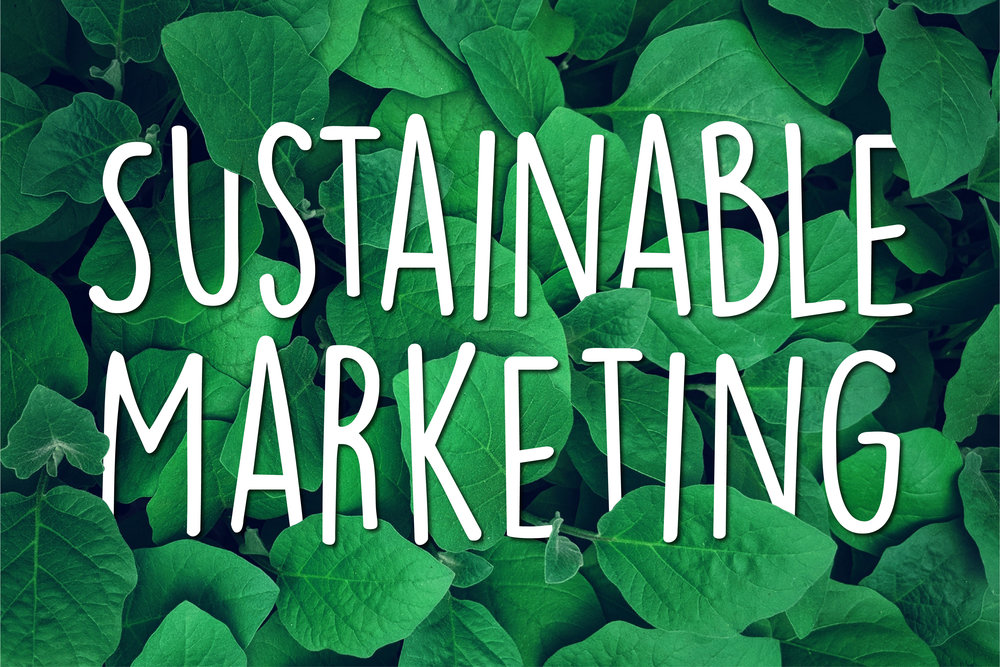Innovating Proven Sustainable Marketing Practices For A Greener Future
Every facet of the industry has begun a shift to sustainability, and marketing is no different. With temperatures reaching record highs and lows, it has become apparent that change needs to happen now. While mainstream efforts often pressure everyday people, businesses must hold themselves accountable for their carbon footprint.
After all, a single person barely registers as a blip in the grand scheme of pollution. In sharp contrast, industries like oil, agriculture, and fashion account for over 75% of all greenhouse gas emissions. Eco-friendly practices within the industry must become the top priority of all business owners. This article will explore how your business can innovate on proven sustainable practices and help towards a greener tomorrow.
Why Sustainability Matters
The world as we know it needs sustainability to remain liveable for the foreseeable future. Although the Earth itself has weathered several apocalyptic events, humanity has not. With each passing year, temperatures reach record highs and lows, and people frivolously spend resources on inefficient endeavors.
As climate change accelerates and resources dwindle, consumers have become more conscious of their environmental footprint. They are actively seeking out products and brands that prioritize sustainability. While the ethical reasons for sustainability are paramount, a common misconception is that sustainability and profit are incompatible.
The misconception stems from the notoriety of greedy corporations who value squeezing every penny out of their business above sustainability. In such cases, the problem lies not with sustainability but with the company itself. If a business fails to profit simply because it cannot stop harming the environment needlessly, then the company needs to do some deep introspection.
In reality, sustainability and profitability can go hand in hand. By adopting sustainable practices, businesses can reduce operational costs, increase efficiency, and enhance their brand reputation. More and more consumers willingly purchase products and services from sustainable companies like Arka and B Corporation. Moral actions don’t mean unprofitable. If anything, these actions will repay itself hand-over-fist in the future.
How to Run a Sustainable Marketing Campaign (And Still Innovate)
Sustainable marketing practices help companies reduce their environmental impact. Moreover, it helps the company resonate with consumers who prioritize eco-friendly products and brands. Here are some sustainable marketing practices that businesses can adopt and make their own:
Energy-Efficiency
Businesses must prioritize energy-efficient technologies and tools for marketing activities. Typical examples include selecting LED lighting and low-power electronics to reduce environmental impact. These new technologies will save the company big-time on operational costs as well.
A potential innovation could be opting for even more advanced power sources, like solar panels. For the more tech-savvy entrepreneurs out there, consider automating the power in the building to switch off based on different factors. For example, lights could switch off on their own if there’s a lot of natural daylight in a room.
Cost-Effective Workflow
Digital processes and automation tools minimize unnecessary expenses and resource consumption in marketing operations. As a result, businesses waste less resources and leave a smaller carbon footprint. Conveniently, an efficient workflow also means a much faster production pipeline. Marketing can pump out the products they advertise in record time, enhancing the brand further.
Potential innovations include generative AI tools that streamline the boilerplate aspects of marketing. Coming up with quick slogans or correcting grammatical errors may seem like a few seconds, but enough of them could hamper marketing efforts for hours. Generative AI helps move the process along, at least when used properly.
Digital Marketing
Companies can leverage digital platforms to apply their e-commerce marketing strategies, which are crucial for advertising, content distribution, and customer engagement. The lack of physical resources means marketing efforts funnel into the utility bills instead of more strenuous expenses. Social media is a recent phenomenon in the grand scheme of marketing history, but it’s as important as television was for marketers.
Intrepid influencers and savvy social media managers innovate social media marketing every day. For example, TikTok, Reels, and YouTube Shorts motivated companies to create memorable, viral content with astonishing efficiency. Seeing a ten-second ad while scrolling through social media leaves a heftier impact than any old flyer.
Employee Education
Marketing managers must provide training and resources to employees on sustainable practices and encourage their participation in eco-friendly initiatives. In other words, sustainability isn’t just something you do. It’s something you learn. If an employee knows why sustainability matters, they can sell the sustainability angle far better.
A great way to innovate the education of employees is through social causes. In today’s era of opinions and hot takes, there’s no shortage of movements for employees to learn from and support. These social causes must feature sustainability and environmental protection as core values. The company can even sponsor these events to foster eco-friendly practices within their community.
Final Thoughts
Ultimately, sustainability can work in modern business. To say otherwise just means a lack of imagination on the company’s part. Every day, brilliant minds find ways to innovate existing sustainability practices to drive profit and eco-friendliness.
Consumers appreciate these efforts and enhance the brand’s image. Sustainability isn’t charity work; It’s an essential part of running a modern business.
